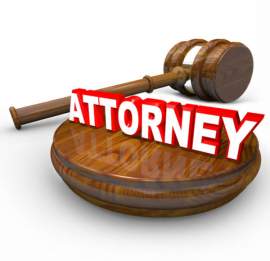
The Big Five Overview

Popular In Paralegal
Defendants Right To Appeal Common Law Heritage Functions Of Law Infancy Insanity Intoxication Judicial Interpretation Common Law Legal Analysis Litigation Pretrial Motions Third Party Rights Roles Of Paralegals In Adr Legal Research Validation Paralegal Classification Of The Law
Responding to the growth and recognition of the paralegal profession in recent years, national organizations have been established to oversee its functions, such as the National Federation of Paralegals Association (NFPA). The NFPA was founded in 1974 and sets forth certain guidelines for which all its members are required to follow and details specific procedures and license requirements for paralegals. Its now consists of 50 professional organizations and represents the interests of about 11,000 members. The Model Disciplinary Rules are a set of guidelines and ethic codes to which all members are strictly held. This organization offers additional education for paralegals and administers an exam to ensure the competency of all its members.
National Association of Legal Assistants (NALA):
Similar to the NFPA, the National Association of Legal Assistants (NALA), is an organization dedicated to the advancement of paralegals, which offers aid in finding employment, opportunities for further education, and professional certification. The NALA also has a Code of Ethics which outline the duties and professional responsibilities of a paralegal. They also identify those responsibilities which are reserved only for attorneys and should never be performed solely by a paralegal. Legal assistants are ethically bound to these codes and must not engage in any activity that is considered an ethical violation. The NALA also aids paralegals in becoming certified.
American Bar Association- Standing Committee on Legal Assistants (SCOLA):
The American Bar Association (ABA) is a national organization of attorney and law students whose main function is to set a series of ethical codes and conduct by which all attorneys must adhere. The ABA is responsible for the accreditation of law schools as well as improving the application of the legal system for the general public. Within the ABA, The Standing Committee on Legal Assistants (SCOLA) establishes a standard of conduct that promotes the fair and effective use of paralegals by attorneys. SCOLA oversees the ABA's General Approval Process which outlines the education and training qualifications of paralegals and legal assistants. SCOLA promotes the paralegal profession by offering attorneys a variety of reasons why paralegals will benefit their practice.
Your State Bar Association:
Each state has its own bar association which is responsible for representing the interests of all attorneys within that state. The responsibilities of a state bar association include administering the bar examination to law students, maintaining an attorney directory to aid the general public, or possibly administering sanctions against attorneys who have committed ethical violations. Within each state bar association, there is generally a division that is dedicated to promoting the paralegal profession. Similar to the national associations, the state bar association offers paralegals a code of ethics and professional conduct as well as opportunities for further education. The code requires paralegals to conduct themselves with full competency and integrity in serving the public. A paralegal may gain membership to this division as an active member, an associate member, or a student.
Your Local Paralegal Association:
Paralegals and legal assistants must be aware of the standard of ethics and conduct under which they are expected to perform. It is very beneficial for anyone in this profession to become a member of a local paralegal association. These organizations will assist paralegals in connecting with attorneys from which they might find employment, as well as receive important information concerning the legal system. Any paralegal looking to advance his knowledge within his field will be able to find educational programs from his local paralegal association and have the opportunity to earn an advanced degree.



















